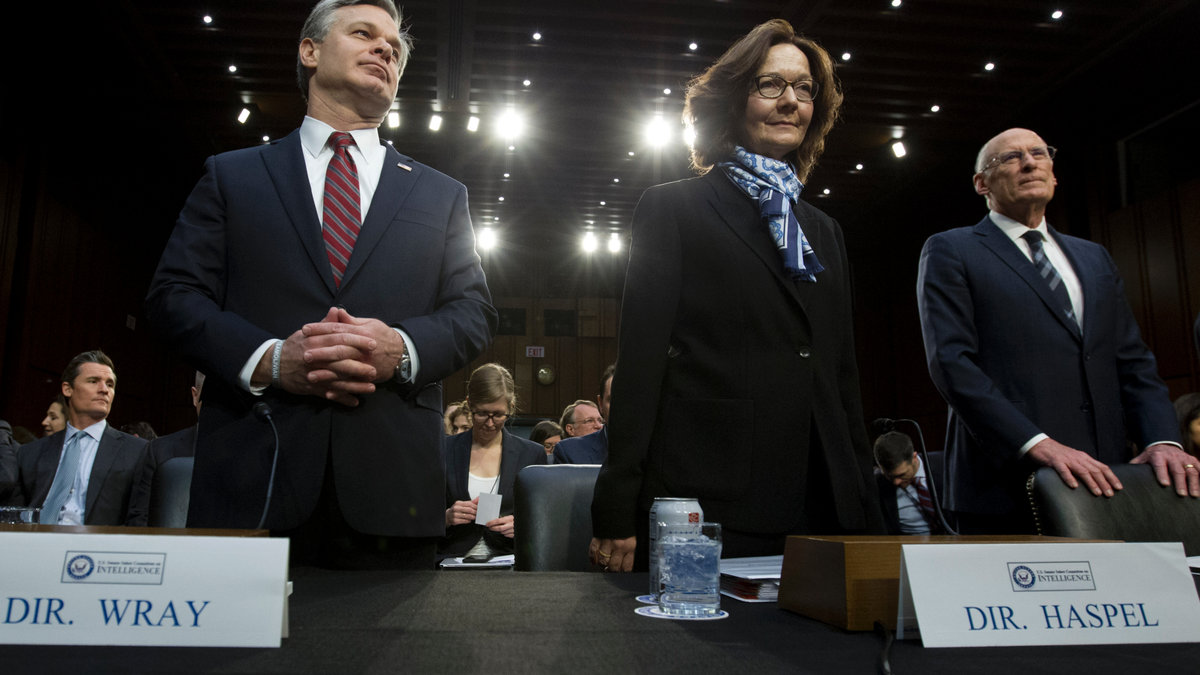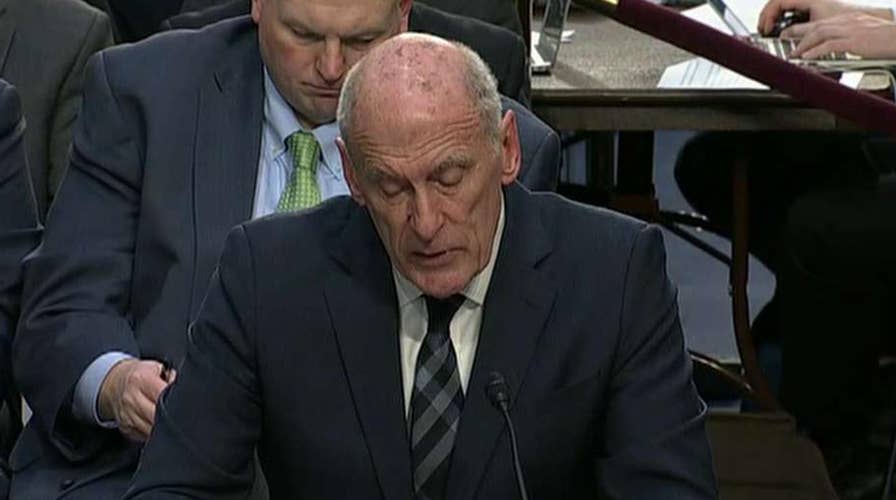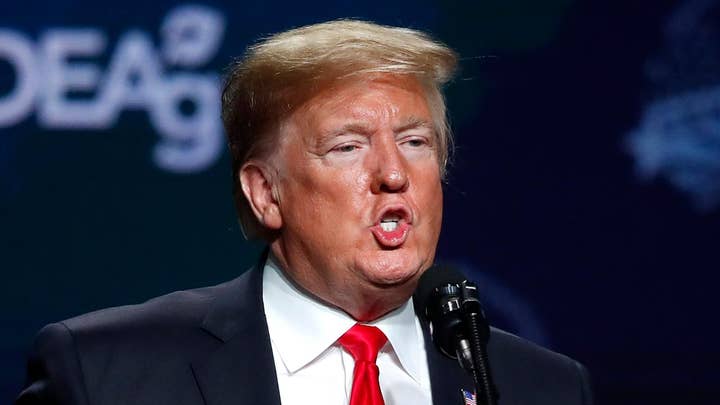Russia and other actors will attempt to interfere in the 2020 elections, U.S. intelligence agencies told Congress on Tuesday, saying such actors will use the tactics they deployed in the 2016 and 2018 campaigns.
Director of National Intelligence Dan Coats told the Senate Intelligence Committee that foreign actors see the upcoming elections as a chance for them to push for their interests by disrupting the process and dividing the electorate.

From left, FBI Director Christopher Wray, CIA Director Gina Haspel and Director of National Intelligence Daniel Coats arrive to testify before the Senate Intelligence Committee on Capitol Hill in Washington Tuesday, Jan. 29. (AP Photo/Jose Luis Magana)
"We assess that foreign actors will view the 2020 U.S. elections as an opportunity to advance their interests,” he said. “We expect them to refine their capabilities and add new tactics as they learn from each other's experiences and efforts.”
Coats said Russia and perhaps other countries such as China – which is increasingly aligned with Moscow – are likely to use social media other means to influence the 2020 U.S. presidential election.
RUSSIAN INTERFERENCE IN US ELECTIONS FAR FROM OVER – HERE’S WHAT TO WATCH FOR
“Our adversaries and strategic competitors probably already are looking to the 2020 U.S. elections as an opportunity to advance their interests,” read the Worldwide Threat Assessment released by Coats on Tuesday.
“Russia’s social media efforts will continue to focus on aggravating social and racial tensions, undermining trust in authorities, and criticizing perceived anti-Russia politicians,” it continued. “Moscow may employ additional influence toolkits — such as spreading disinformation, conducting hack-and-leak operations, or manipulating data — in a more targeted fashion to influence U.S. policy, actions, and elections.”
Coats’s testimony went on to cast doubt on President Trump’s goal of a nuclear-free North Korea, saying it’s unlikely the regime will entirely dismantle its nuclear arsenal.
While admitting that Kim Jong Un has expressed support for a nuclear-free Korean peninsula and has not recently tested a nuclear-capable missile, Coats said the intelligence assessment indicates will continue to seek to retain its nuclear capabilities and “is unlikely to completely give up its nuclear weapons and production capability because its leaders ultimately view nuclear weapons as critical to regime survival.”
“Our assessment is bolstered by our observations of some activity that is inconsistent with full denuclearization,” he added, without providing more details.
The assessment deals a blow to the Trump administration’s view that North Korea, thanks to the historic summit last year where the North agreed to denuclearization of the peninsula, no longer seeks to develop their nuclear arsenal or poses the threat of nuclear weapons to its neighbors and American allies.
CLICK HERE TO GET THE FOX NEWS APP
The threat assessment report also contradicts the Trump administration’s insistence that ISIS has been defeated, with the report claiming the terror group “very likely will continue to pursue external attacks from Iraq and Syria against regional and Western adversaries, including the United States.”
Coats told the committee that the terror group, which since has been decimated territory-wise in the Middle East, has “returned to its guerrilla warfare roots while continuing to plot attacks and direct its supporters worldwide.”
The Associated Press contributed to this report.





